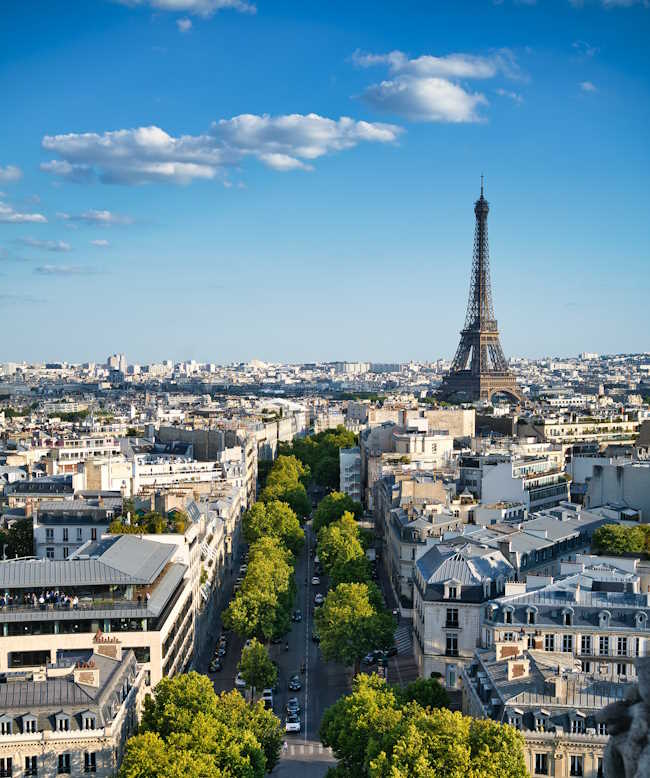Top 20 Influential Anarchists: Their Lives and Legacies
One radical and powerful vision that has endured in the annals of political philosophy is anarchism, a philosophy that advocates for a society free of hierarchical systems and government.
Prominent anarchists’ lives and legacies have weaved a dissenting tapestry, inspiring social justice movements and upending oppressive systems.
These 20 individuals, ranging from the fierce activist Emma Goldman to the erudite Noam Chomsky, have left their imprint on the anarchist world.
Investigating their beliefs, lives, and long-lasting effects reveals a wide range of viewpoints bound by one goal: the unwavering pursuit of a society in which personal freedoms are upheld, authority is undermined, and power is decentralized.
Come along for a tour through the hallowed halls of anarchism, where the pursuit of a more just and free future has been forever impacted by the ideas of revolutionary philosophers.
1. Mikhail Bakunin

Nadar, Public domain, via Wikimedia Commons
Anarchist thought owes much to the Russian revolutionary and philosopher Mikhail Bakunin (1814–1876). His passionate defense of anti-capitalism and anti-authoritarianism served as a foundation for later anarchist ideas.
As a pillar of the revolution, Bakunin’s theories—which emphasize the destruction of repressive structures—have stood the test of time.
He sparked a movement that propelled successive generations of activists, questioning established power structures and encouraging the creation of a society based on the values of voluntary collaboration and individual liberty through his writings and revolutionary fervor.
The legacy of Bakunin continues to serve as a beacon of hope for people who want to topple oppressive structures and imagine a society freed from hierarchical limitations.
2. Emma Goldman
Known as the “Anarchist Queen,” Emma Goldman (1869–1940) was a powerful figure in the anarchist movement. An ardent supporter of anarchism, feminism, and workers’ rights, Goldman’s passionate writings and speeches had an international impact.
Her unwavering dedication to opposing authority and promoting personal liberty impacted the fight for social justice. Goldman’s legacy survives as an inspirational person in the struggle against repressive regimes, despite risking persecution and even expulsion.
Her extreme views, which support a society founded on freedom and equality, continue influencing anarchists and activists working for a more just and equitable world.
3. Pierre-Joseph Proudhon

Nadar, Public domain, via Wikimedia Commons
Often credited as the founder of anarchism, Pierre-Joseph Proudhon (1809–1865) transformed political philosophy by stating in his landmark work that “property is theft.”
Proudhon was a French philosopher whose support of mutualism and a decentralized society had an impact on anarchists in later generations.
He cleared the path for movements opposed to authoritarianism by questioning the validity of property and hierarchical institutions.
Proudhon’s theories, despite their complexity and often contentiousness, established the foundation for anarchist philosophy and promoted an image of a society predicated on voluntary collaboration and just distribution.
His scholarly contributions are still relevant today, influencing the current discussion about social organization and anarchism.
4. Errico Malatesta
Anarchist Errico Malatesta (1853–1932), a key player in the labor movement, left behind a lasting legacy of defiance against repressive institutions. Malatesta became a key figure in anarchist groups because of his dedication to revolutionary struggle and direct action.
He battled against capitalist and state tyranny by participating in labor strikes and anti-fascist activity. Generations of activists have been motivated by his emphasis on the practical application of anarchist beliefs.
Malatesta’s status as a notable figure in anarchist history is cemented by his unrelenting commitment to social justice and his ceaseless attempts to establish a society based on equality and mutual aid.
5. Noam Chomsky

Duncan Rawlinson, CC BY 2.0, via Wikimedia Commons
The titan of modern thought, Noam Chomsky (1928–present), has had a profound influence on anarchist theory and international movement.
Chomsky was not a conventional anarchist, but many anarchists have been influenced by his criticisms of authority, imperialism, and corporate power.
A linguist, philosopher, and social critic, he highlights the need for grassroots organizing and decentralization. Within anarchist circles, Chomsky’s support of individual autonomy and his critiques of authority structures are highly regarded.
Through his numerous publications and talks, Chomsky continues to have an impact on a variety of groups and advance knowledge of anarchism as a force that subverts established hierarchies and systems of inequality.
6. Nestor Makhno
During the Russian Civil War, the anarchist Black Army, led by the Ukrainian revolutionary Nestor Makhno (1888–1934), embodied the struggle against both Bolshevik and White Army forces.
Makhno left behind an enduring legacy of decentralization and peasant self-governance in his anarchist vision of anarchist society in Ukraine. He demonstrated a special fusion of anarchist and revolutionary action with his commitment to communalism and resistance to authoritarianism.
Even when the Makhnovshchina was ultimately defeated, Makhno’s ideas live on in anarchist philosophy as a symbol of dedication to direct action and the quest for a community based on local autonomy and voluntary cooperation.
7. Voltairine de Cleyre

See page for author, Public domain, via Wikimedia Commons
Throughout the history of social activity, Voltairine de Cleyre (1866–1912), a well-known American individualist anarchist, and feminist, left behind a body of thought that is still relevant today.
Well-known for her passionate speeches and poetic writings, de Cleyre vehemently defended individual liberty while opposing repressive authority and gender conventions.
Her unwavering support of anarchism and her dedication to women’s rights distinguished her as a trailblazing individual. De Cleyre’s work, which was influenced by a variety of philosophical currents, stressed the connection between feminism and anti-authoritarianism and had a lasting effect on anarchist philosophy.
Activists today working for a more just and liberated world are still motivated by her bold ideas.
8. Ricardo Flores Magón
Mexican anarchist and revolutionary Ricardo Flores Magón (1874–1922) was a leading proponent of social justice and agrarian reform during the Mexican Revolution.
Being a prominent member of the Mexican Liberal Party, his articles questioned both the new powers and Porfirio Díaz’s repressive rule. Strongly opposing capitalism and dictatorship, Flores Magón’s impact was seen internationally and sparked social change movements.
His dedication to upending hierarchical hierarchies and liberating the underprivileged persists despite jail and exile. The legacy of Flores Magón continues to serve as a reminder of the interplay between anarchism, anti-imperialism, and the continuous fight for social justice.
9. Louise Michel

File:Louise Michel2.jpg, Public domain, via Wikimedia Commons
French feminist and anarchist Louise Michel (1830–1905) became a formidable force during the 1871 Paris Commune. Michel was a committed teacher, poet, and nurse who zealously defended working-class rights.
She became a forerunner in anarchist circles because of her unshakable dedication to gender equality, communal life, and social justice. Michel persisted in her activity, speaking up for the oppressed and disenfranchised, even though she faced jail for her involvement in the Commune.
Her life has left an enduring legacy that motivates modern movements for equality and autonomy, serving as a tribute to the unwavering spirit of people who oppose dictatorship.
10. Peter Kropotkin
Anarchist theorist Peter Kropotkin (1842–1921), a Russian nobleman by trade, had a profound influence on the growth of anarchist philosophy. Rejecting his aristocratic heritage, Kropotkin promoted anarcho-communist ideas, decentralized communities, and mutual aid as the cornerstones of society.
His seminal publications, such as “Mutual Aid: A Factor of Evolution,” questioned the evolutionary theory’s dominant conceptions of competition. Modern anarchism is shaped by Kropotkin’s dedication to scientific research and his ideal of a peaceful, cooperative society.
Kropotkin was a pivotal figure in the anarchist movement, and his theories continue to serve as a guide for people looking for alternatives to social injustice and hierarchical systems.
11. Alexander Berkman

See page for author, Public domain, via Wikimedia Commons
Emma Goldman’s close friend and coworker Alexander Berkman (1870–1936) was instrumental in forming American anarchists in the early 20th century. After being sent to jail for trying to kill businessman Henry Clay Frick during the Homestead Strike, Berkman became a fervent supporter of anarchist and worker rights.
His seminal essay, “Prison Memoirs of an Anarchist,” shed light on the brutal reality of prison life. Berkman was an international activist who opposed both capitalist and state tyranny and promoted social revolution. His unwavering commitment to the anarchist cause and the quest for a more egalitarian society endures despite his hardships.
12. Lucy Parsons
The American labor organizer and anarchist Lucy Parsons (1853–1942) is a powerful figure in the history of social justice. An outspoken supporter of racial equality and labor rights, Parsons was a key figure in the 1886 Haymarket scandal.
Throughout her life, she bravely tackled discrimination, poverty, and injustice issues through her advocacy. As a co-founder of the Industrial Workers of the World (IWW), Parsons dedicated his life to uplifting underprivileged groups.
Parsons’ dedication to revolutionary principles and the struggle against repressive structures confirms her status as a leader in the quest for a society that is more liberated and egalitarian.
13. Max Stirner
German philosopher Max Stirner (1806–1856) is regarded as a thought leader in the anarchist movement. Stirner, best known for his book “The Ego and Its Own,” emphasized radical individualism and egoism to challenge conventional anarchist and socialist ideas.
He promoted the pursuit of self-interest and the destruction of restrictive societal structures, rejecting morality and outside authority.
Despite their controversial nature, Stirner’s theories had a lasting effect on anarchism, influencing the development of individualist anarchism and following philosophers.
His challenging injunction to follow one’s impulses and reject externally imposed ideas is still a central tenet of anarchist thought.
14. Dorothy Day

Unknown photographer, Public domain, via Wikimedia Commons
American writer and social activist Dorothy Day (1897–1980) combined her strong religious beliefs with a radical dedication to social justice to co-found the Catholic Worker Movement.
Though Day was raised in a Christian home, her intentional poverty and support of peaceful resistance were clear indications of her anarchistic beliefs.
She devoted her life to helping the underprivileged and was an outspoken opponent of both capitalism and war. Day advocated for love, compassion, and decisive action through the Catholic Worker newspaper and communal life.
She left a long legacy of action as a trailblazer in both religious and anarchist communities, thanks to her innovative synthesis of Christian ethics with anarchism.
15. Benjamin Tucker
Leading the American individualist anarchist movement of the late 19th century was Benjamin Tucker (1854–1939). Through his well-known periodical “Liberty,” Tucker spread radical concepts that prioritized voluntary collaboration and individual freedom.
The idea of “occupancy and use” as the foundation for property rights, which supported an unrestricted trade of products and services among people, was central to his ideology.
Tucker made a key contribution to the development of anarchism in the United States through his support of free-market anarchism and criticism of governmental involvement. As a result, he left a lasting legacy in the anarchist tradition.
16. Gustav Landauer

See page for author, Public domain, via Wikimedia Commons
Anarchist and revolutionary Gustav Landauer (1870–1919) was a key figure in the Bavarian Soviet Republic. Landauer was a poet and philosopher who promoted communalism and peaceful resistance. In his ideal future, authoritarian state structures would give way to autonomous communities in a decentralized system.
Particularly noteworthy was Landauer’s work “Call to Socialism,” which demonstrated his dedication to fusing anarchism and spirituality.
Landauer’s advocacy brought him terrible repercussions, including the violent suppression of the Bavarian Council Republic, but his ideas endure and inspire others who are looking for alternatives to centralized control and who foresee a more peaceful social structure.
17. Murray Bookchin
Modern anarchism was influenced by the communalism theories of prominent social ecologist and libertarian socialist Murray Bookchin (1921–2006). To incorporate ecology into political philosophy, Bookchin promoted decentralized, ecological governance.
His writings, such as “The Ecology of Freedom” and “Post-Scarcity Anarchism,” stressed the need for humans and the natural environment to coexist together. Bookchin, the founder of the Institute for Social Ecology, dreamed of a world in which people had an active role in making decisions.
Although he received criticism from anarchist circles, his writings spurred conversations about the relationship between ecology and anarchism and had an impact on modern movements that aimed to achieve social justice and ecological sustainability.
18. Josiah Warren

Frank Rowell, Public domain, via Wikimedia Commons
As one of the first anarchists, American individualist and anarchist Josiah Warren (1798–1874) made a lasting impression. Warren was a trailblazer in the field of intentional communities, testing out communal life through fair labor exchange and upending conventional ideas of property.
His theories, presented in “Equitable Commerce” and “True Civilization,” condemned the use of force and aimed to create a society where people cooperated voluntarily and with autonomy.
Warren set the foundation for later anarchist generations with his contributions to early anarchist thinking, emphasizing mutualism and non-coercive connections. His impact is felt in the current debates over alternative social and economic systems.
19. CrimethInc. Ex-Workers’ Collective
Founded in 1996, the CrimethInc. Ex-Workers’ Collective is an anonymous anarchist group that produces powerful propaganda and literature. CrimethInc. is well-known for taking a novel approach and emphasizing independence, direct action, and opposition to capitalism.
Their writings, such as “Days of War, Nights of Love,” challenge societal norms and promote radical social change, inspiring a wide range of activists. As a reflection of their dedication to anarchist ideals, CrimethInc. operates without a central leadership and promotes a decentralized network.
The collective has made a significant contribution to the current conversation on autonomy and resistance through its influence on modern anarchist ideas and its role in spreading alternative narratives.
20. Subcomandante Marcos
The Zapatista Army of National Liberation (EZLN) in Mexico is led by Subcomandante Marcos, a 1957 native who personifies the nexus of anarchism, anti-capitalism, and indigenous rights.
The revolutionary leader wearing a mask was a key figure in the 1994 Zapatista insurrection, where he promoted land reform and indigenous communities’ right to autonomy.
Frequently recognized as a postmodern guerilla, Marcos employed astute media tactics to draw attention to the hardships faced by the underprivileged.
Global movements opposing repressive regimes and imagining a more just and equitable world continue to draw inspiration from the Zapatista revolution, which placed a strong emphasis on grassroots organizing and opposed neoliberalism.
Planning a trip to Paris ? Get ready !
These are Amazon’s best-selling travel products that you may need for coming to Paris.
Bookstore
- The best travel book : Rick Steves – Paris 2023 – Learn more here
- Fodor’s Paris 2024 – Learn more here
Travel Gear
- Venture Pal Lightweight Backpack – Learn more here
- Samsonite Winfield 2 28″ Luggage – Learn more here
- Swig Savvy’s Stainless Steel Insulated Water Bottle – Learn more here
Check Amazon’s best-seller list for the most popular travel accessories. We sometimes read this list just to find out what new travel products people are buying.









